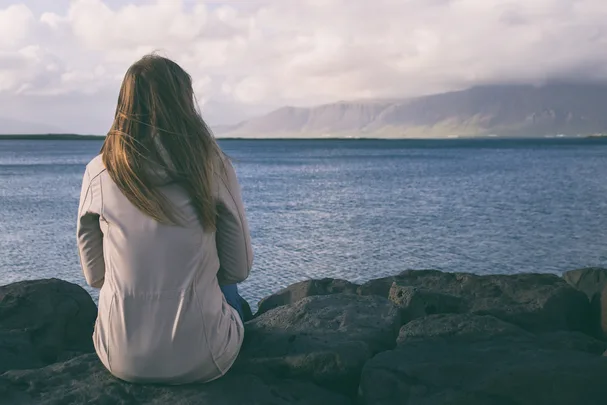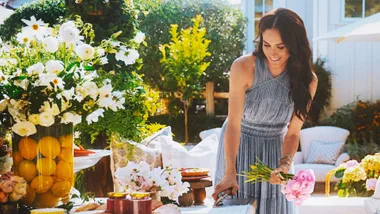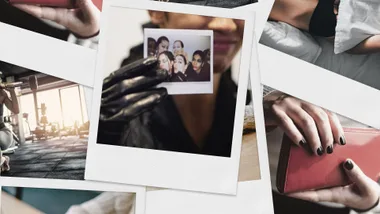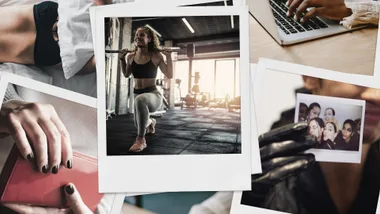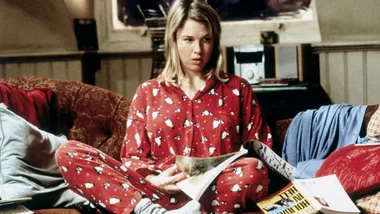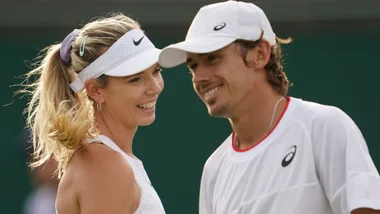My parents and sister were due to fly over the week Australia shut its borders. At the time we hurriedly sent messages back and forth debating if it was safe for them to come, now with hindsight I wish more than anything I’d insisted that it was.
In August it will be two years since I waved goodbye to them in London. Since then my eldest daughter (who is two and eight months) has learnt to walk and talk and I’ve had a second child. Like all the milestones the pandemic has stolen from us, I told myself “who cares if they don’t see me pregnant”, it was my second child after all.
Then as the border closures extended I convinced myself it didn’t matter that they wouldn’t be there for the birth or see my newborn – “babies are boring” I laughed unconvincingly to friends. Now, faced with the prospect that they may not see her until she is two (Prime Minister Scott Morrison has been unable to commit even to a Christmas 2022 reopening) the joke doesn’t feel so funny.
Last week as Sydney went into a two-week lockdown, sign artist James Powditch put up at the Roulette store, decrying Morrison’s pandemic strategy, went viral.
“Dear Customers, We will be closed for the foreseeable future because Scott Morrison is a useless dickhead who only ordered enough vaccine to vaccinate 4% of the population 18 months into a pandemic,” reads the sign, shared on Twitter, in reference to the Australian Prime Minister.
His voice is just one of many growing increasingly despairing at the Australian government’s bungled vaccine rollout and refusal to commit to a proper timeline out of this pandemic.
I watched with a ball of anxiety in the pit of my stomach as news reports revealed rather than looking for ways to get life “back to normal” the government planned to reduce international arrivals by half until at least the end of 2021, leaving many of the 34,000 Australians hoping to get home stranded.
Elsewhere confusion over the vaccine raged as Scott Morrison declared the AstraZeneca vaccine safe for under 40s, while Queensland Premier Annastacia Palaszczuk and the state’s chief health officer Janette Young urged people not to get the vaccine, with Janette forcefully saying, “I do not want under-40s to get AstraZeneca because they are at increased risk of getting the rare clotting syndrome,” she said.
With NSW’s premier Gladys Berejiklian saying she believes borders should stay shut until 80% of the population is vaccinated and only 5% fully currently vaccinated, the chances of seeing my family feel like they’re slipping even further from my grasp.
Even Scott Morrison’s announcement that he’s working on a “four-stage” plan to get Australia out of its pandemic crisis, which should have offered a glimmer of hope, left me feeling sick to my stomach when he said that we would only “possibly” reach stage two – that the international arrivals cap would be restored to the previous level for unvaccinated travellers, with a separate, larger cap for vaccinated travellers – in 2022.
Like so many ex-pats living away from their families (in the 2016 census it was revealed that around half the people living in Australia were born overseas or had at least one parent born overseas) I have felt helpless and heartbroken in the face of the government’s lack of communication and unwillingness to commit to any kind of timeline in opening the international borders.
At playgroups with other ex-pat mums we look at each other in sympathy and go round in circles asking each other the same questions, “should we go home?”, “how long can it last?”, “surely if they’ve been vaccinated they can come?”. There’s some comfort in the collective suffering, I know I am not alone in my anguish. To my parents and in-laws, I send daily videos of our daughters desperate to capture this time for them, their funny little personalities so silly and care-free. My mother-in-law says they make her laugh and cry in equal measure. I scan the internet and sign petitions entitled “Let grandparents be exempt from Australia’s travel ban”. My friends and I Whats app each other links to news articles: “they say there will be travel in October!”, “now it’s Christmas!”. But as each deadline looms and falls away we’re left feeling worse than before, asking ourselves “how long, is long enough?”. At nighttime awake feeding my daughter, I let my mind go to the places I keep portioned off in the day and send silent prayers that it will end.
While I know I’m extremely lucky to live in Australia during a pandemic that has ravaged the world, there’s a special kind of grief that comes with knowing your family will never see certain stages of your child’s life, except on video screens. To some, “grief” may feel like a strong word to use especially when I have friends who’ve lost people during the pandemic – a pain far more unimaginable – but ours is a “living grief” – a mourning for times and moments that we’ll never get back. Mary Hoang – author of Darkness is Golden and head psychologist & founder of The Indigo Project, says, “Living grief is a kind of weighty and confusing loss played out in real time. It’s an ambiguous type of grief that’s not widely acknowledged, however it leaves us saddled with the loss of experiences, relationships and an envisioned future that we recognise is no longer possible – at least, not in the way we once might have imagined. The pandemic has left us acknowledging lost experiences, celebrations, work opportunities and connections, such as travel, festivals, weddings, parties and reunions.”
Rather than just tuck our feelings away and take the “it is what it is” approach Hoang gives us permission to feel all the feels. “Firstly we must give ourselves permission to treat these lost experiences and lost moments of connection as a loss. We often put conditions on grief – as if it’s only reserved for those in the wake of death. However, these experiences of loss are real, they hurt and they deserve to be honoured. Do not bully yourself to “feel better” or “get over it”, as these approaches rarely work. Gently check in with yourself at different points of the day and ask how you might support yourself through these deeper feelings. Are there gestures of kindness you might show yourself – such as time out to breathe, making a freshly brewed pot of tea or a warm, relaxing bath? Are there opportunities for you to share your feelings – perhaps through journalling or talking to a close friend or therapist?”
Like many migrants, we’ve dealt with the guilt of not living close to family by ping-ponging back and forth every year and convincing ourselves that the time we do spend together is quality time – our hearts caught between two countries, the place we were born in and the adopted country we’ve made a life in. But with the on-going uncertainty of border closures and outbreaks cropping up, my husband and I are talking about the very real possibility that we may have to return home and give up the life we’ve spent eight years building.
And so, if acceptance and hope are the seventh stage of grieving, then I must accept that my parents won’t ever see my daughter as a baby, or watch my two-year-old perform Frozen IRL (a dubious loss some might say). But I’m asking Mr Morrison to meet me halfway and give us what we all really need now, hope, real hope that these aren’t empty promises and that he has a timeline for this to end swiftly – and that when it does those hugs with our families will be the sweetest and warmest we’ve ever felt.
Laura Evans is a freelance writer.
